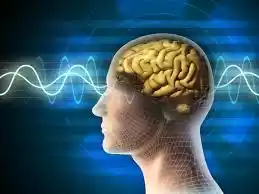The human brain is one of the most important parts of the body. It controls every aspect of the body, from nervous impulses, to stress and strain, to thoughts to body movement and motor functions, to breathing. This is why; protecting the brain from any damage is important for smooth functioning of body. And even in case of any brain related concerns always look for immediate diagnosis and best treatment.

Various disorders that may develop in the brain
Whether due to an injury or due to a genetic disorder, or cause of an infectious disease, brain disorders are likely to form in the body for various reasons. These disorders are known to adversely affect the entire nervous system and cause a number of disabilities and crippling effects. Some of them include –
- Hematoma
- Cerebral Contusion
- Cerebral edema
- Body or regional paralysis
- Stroke
- Seizure
- Alzheimer
- Parkinson’s disease
- Huntington’s disease
- Dystonia
- Spasticity
- Hemorrhage
Non-surgical and surgical treatments for brain disorders
The brain is considered to be the primary controlling center for the nervous system in the body. Any damage sustained by it, affects the entire body. To counteract brain damage, a slew of treatments and procedures, both surgery and non-surgery based, have been developed.
A guide for some of these disorders and their subsequent treatment are listed here –
Movement disorder
Movement disorders are caused by the nerves sending signals to the muscle cells and tissues of the body. This results in abnormal and involuntary body movements, such as limb twitching and muscle spasms. The primary cause of these movement disorders is due to damage of the cerebellum and the basal ganglia collection of nerves, located at the base of the cerebrum of the brain.
Treatment -
In cases of body movement disorders arising due to brain-related problems such as, Parkinson’s disease, dystonia, multiple sclerosis, spasticity, that hamper body movement, Botulin toxin or BOTOX is injected into the body. BOTOX is known to block the release of acetylcholine- a chemical that acts as a neurotransmitter and sends signals to muscle cells and causes involuntary movement. A consistent dose of this chemical helps maintain steady body movement and subside the effects of movement disorder in the body,
Multiple sclerosis
This condition arises when the body immune system attacks the protective outer sheath of nerve fibers or the myelin. This causes the nerve cells to get damaged, triggering communication problems between the brain and the rest of the body.
Treatments -
Multiple sclerosis is a condition that has no absolute cure as it affects the nerve cells directly. But treatments might help in controlling the issue and control the effect.
There are two main treatments for this condition –
Corticosteroids – Either taken orally or through intravenous methods, these drugs help reduce and subside nerve inflammations. Over dosage might lead to certain side-effects such as in insomnia, mood swings, increased blood pressure, etc. so it must be prescribed by a certified medical practioner.
Plasma exchange (plasmapheresis) – This is a surgical procedure that is used to treat the Multiple sclerosis condition. Here the blood plasma is first separated from the blood cells. The filtered blood cells are then infused with a protein solution – albumin and injected back into the body. Through this solution, the blood cells are purified and the condition is largely controlled.
Neuromuscular disorder
Primarily caused due to genetic disorder, this condition affects the nerve-muscle connection. A variety of muscle-related conditions occur due to this, such as muscle fatigue, muscle atrophy, etc. Known to be progressive in nature, this condition increases its effect over time.
Treatments –
While no hard-set cures for this disorder have been made yet, some treatments that aid in subsidizing the effect exist.
Medicinal therapy – Anticonvulsants, immunosuppressive and antidepressants drugs are known to control the extent of this disorder. As always, proper dosage of these drugs must always be prescribed by a certified medical professional.
Injecting BOTOX – BOTOX or Botulinum toxin is a highly effective in treating neuromuscular disorders as it disrupts brain-muscle communication. It is also highly dangerous to the body and may permanently destroy nerve cells, which is why proper dosage must always be issued by a medical professional.
Cerebrovascular condition treatments
Cerebrovascular conditions refer to a group of disorders that affect the supply of blood to the brain and cause affects such as stroke, aneurysms, hemorrhage etc. The preliminary symptoms for this includes, severe headache, dimness of vision, partial body paralysis, frequent loss of consciousness
Treatments –
Cerebrovascular diseases are a wide range of diseases and disorders. They are all known to happen due to a number of different reasons. Surgical treatments of the cartoid artery that supplies blood to the brain are necessary for treating a majority of these cases. The two main surgical treatments include –
Carotid endarterectomy (CEA) – In most cases, cerebrovascular conditions occur due to blockage of the carotid artery that supplies blood to the brain. Here the surgeon makes an incision in the artery and frees the blockage, thus allowing blood to flow freely into the brain.
Carotid angioplasty and stenting- This procedure involves inserting small balloon-like catheter into the artery to broaden it. This helps free up the artery and causes blood to flow more freely into the brain.
Brain disorder treatment centers
India is known to be one of the best countries to get treatment for brain disorders. The city of Kolkata in particular is known to provide some of the most advanced and high-tech brain treatments. Obtaining brain disorder treatments through the help of the best brain doctor in Kolkata is always easy.


